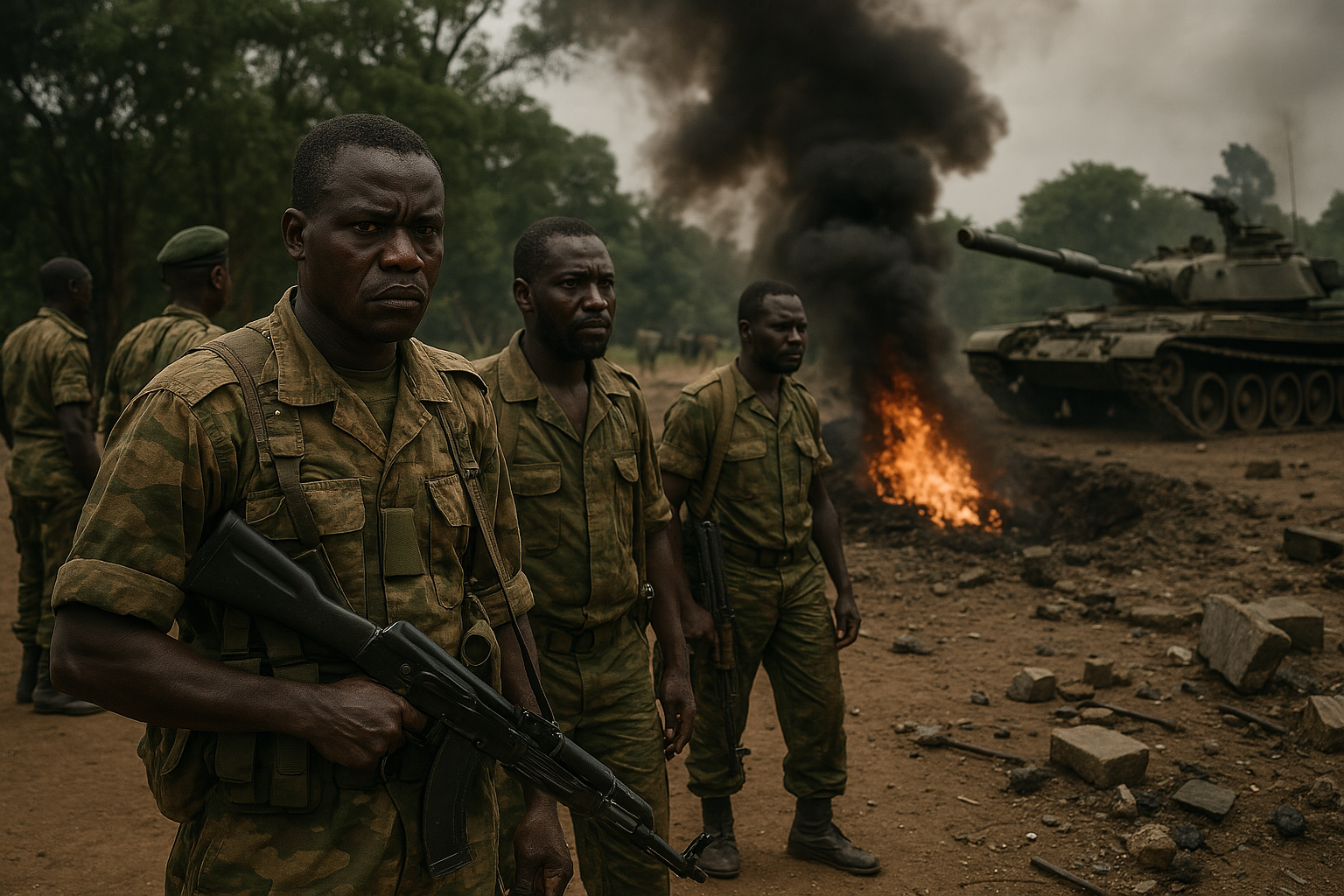UN Sounds Alarm on South Sudan Crisis as Peace Agreement Nears Collapse
“This is no longer a localized political crisis—it’s the unraveling of an entire peace process,” said Commissioner Carlos Castresana Fernández.

The United Nations Commission on Human Rights in South Sudan has issued an urgent and grave warning over the country’s deteriorating security situation, emphasizing that the nation is on the brink of renewed war. Amid escalating violence, the arrest of key opposition leaders, and foreign military intervention, the Commission has called for immediate international and regional action to avert a humanitarian catastrophe and preserve the Revitalized Peace Agreement (R-ARCSS), South Sudan’s last remaining hope for political stability.
In a press briefing from Geneva, Yasmin Sooka, Chairperson of the Commission, described the recent developments as a “systematic and reckless dismantling” of the peace process, citing targeted violence against civilians, political detentions, and a clear breakdown in the rule of law. “At the heart of South Sudan’s crisis is a failure to protect civilians and uphold the commitments of the Revitalized Peace Agreement,” she said. “The deliberate targeting of opposition leaders and civilians represents a reckless disregard for international law and the country’s future.”
The most alarming development came with the detention of First Vice President and opposition leader Dr. Riek Machar. His arrest, reportedly carried out by elite government forces without due process, has sparked outrage among civil society groups and threatens to completely derail the fragile power-sharing arrangement. According to UN sources, Machar’s current whereabouts remain unknown, raising concerns for his safety.
The month of March 2025 has seen a dramatic uptick in violence across several key regions. In Upper Nile State, government aerial bombardments followed a 7 March incident in which a UN peacekeeping helicopter was attacked under disputed circumstances. The bombardments, many of which reportedly struck populated civilian areas, have led to the displacement of more than 60,000 people, according to humanitarian agencies on the ground.
Elsewhere, in Jonglei and Central Equatoria, ethnic militias and government-aligned forces have clashed with opposition groups, with reports of widespread civilian casualties, abductions, and looting. The violence has crept perilously close to the capital, Juba, where residents describe a state of fear and uncertainty.
“This is no longer a localized political crisis—it’s the unraveling of an entire peace process,” said Commissioner Carlos Castresana Fernández. “The signs of mass atrocity crimes are surfacing again: arbitrary detentions, forced displacement, indiscriminate attacks on civilians. It is the civilian population who pays the highest price for political and military ambition.”
Adding to concerns is the recent deployment of Ugandan troops and heavy artillery into South Sudanese territory, reportedly at the request of President Salva Kiir. This foreign military involvement has sparked fears of a broader regional conflict and may constitute a violation of the UN arms embargo currently imposed on South Sudan. International observers have expressed alarm at the presence of Ugandan tanks near key border towns and the increased militarization of disputed zones.
“The presence of foreign troops on South Sudanese soil, particularly without transparent agreements and oversight, escalates the risks to civilians and fuels a dangerous narrative of foreign interference,” warned Commissioner Barney Afako. “This could spark further regional instability at a time when diplomacy is desperately needed.”
The Commission reiterated that all parties to the conflict—government forces, opposition groups, and foreign military actors—are bound by international humanitarian and human rights law. Violations, including extrajudicial killings, attacks on humanitarian personnel, and the use of starvation as a weapon of war, may result in prosecution for war crimes or crimes against humanity in domestic or international courts.
Sooka called for the immediate release of all political detainees, including Dr. Machar, and urged South Sudanese leaders to return to the negotiating table. “The Peace Agreement is not a suggestion—it is a binding commitment,” she said. “Its consistent undermining is not only unlawful but a profound betrayal of the people of South Sudan who have already endured immense suffering.”
The Commission has also called on international actors, including the African Union, the Intergovernmental Authority on Development (IGAD), the UN Security Council, and key foreign governments, to step up diplomatic efforts to de-escalate the conflict. Recommended actions include:
-
Immediate convening of a high-level regional summit on South Sudan.
-
Imposition of targeted sanctions on individuals obstructing the peace process.
-
Deployment of independent human rights monitors across conflict zones.
-
Reinforcement of the UNMISS mandate to ensure better civilian protection.
-
Enhanced humanitarian funding to support displaced populations.
With the peace process hanging by a thread and the specter of renewed civil war looming large, the coming days may prove critical for the future of the world’s youngest nation. As Commissioner Afako warned, “We must not allow South Sudan to fall back into the abyss. The opportunity for peace still exists—but only if it is seized now.”
- READ MORE ON:
- Carlos Castresana Fernández
- South Sudan
- Yasmin Sooka










